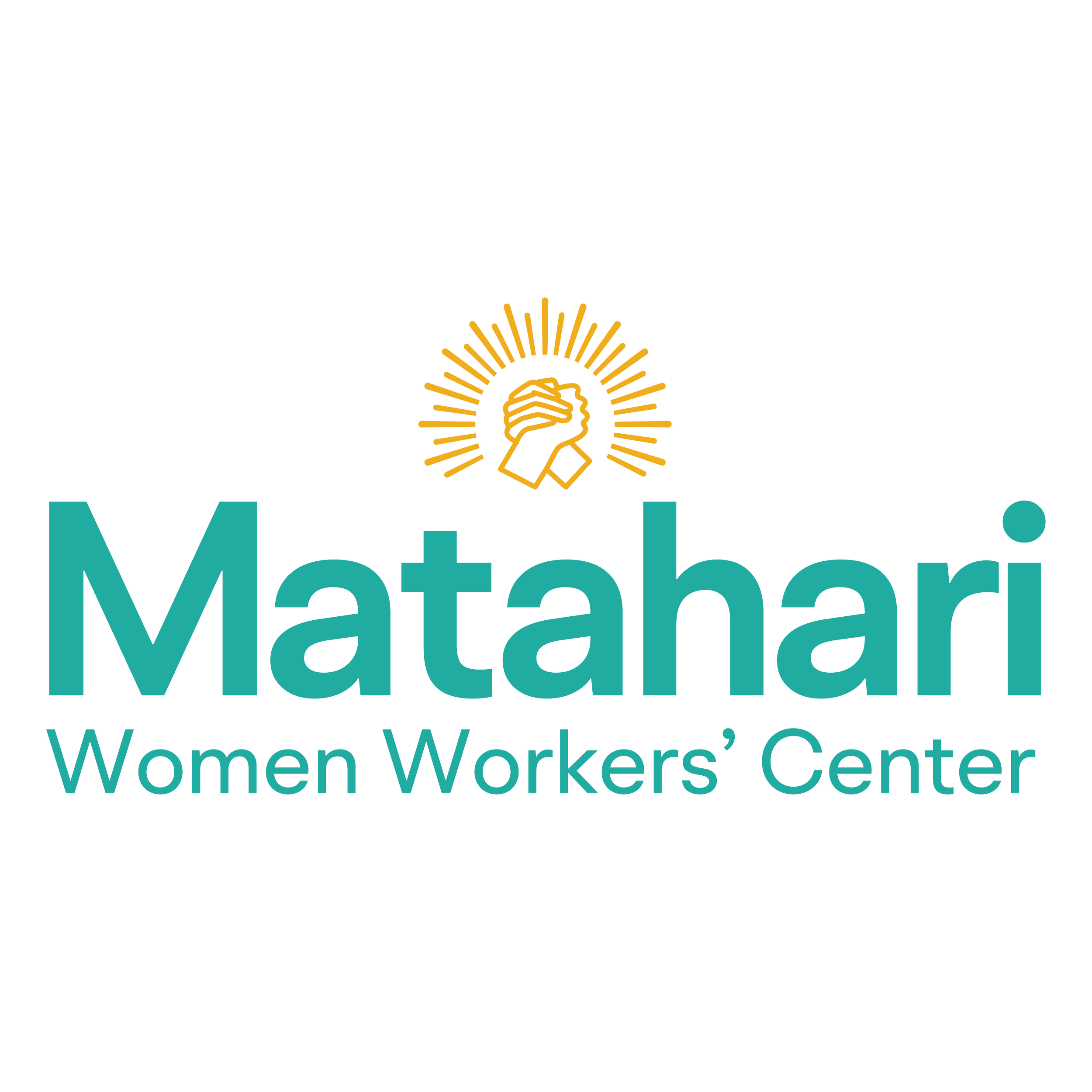Matahari members and friends gather for International Nanny Training Day, the largest convening of nannies and child caretakers in Greater Boston on Saturday, April 13, 2019.
Matahari members and community join at the second annual Femme Workers Rising Up event gathering au pairs, nannies, adult/elder caregivers, house cleaners, and restaurant workers. July 13, 2024
HISTORY
Matahari Women Workers’ Center (“Matahari”) was founded in 2002 by Carol Gomez and other women of color leaders in order to create community solutions to end and prevent human trafficking, family violence, and sexual and labor exploitation.
Matahari’s initial focus was working with women of color the majority of whom were immigrants whose particular needs were often unmet by traditional violence against women organizations. We managed over 400 cases of women and immigrants suffering a range of human rights violations including labor and sexual exploitation, human trafficking, and domestic violence. Beyond intensive counseling and access to legal, housing and health resources, Matahari created a safe and supportive network that women could continue to turn to during their life-long processes of healing and empowering themselves through individual growth and social action.
In 2009, Matahari shifted focus, recognizing that while support and advocacy was key to survivor healing and empowerment, addressing the root causes of violence against women of color would require a fundamental shift in power relations that could only be realized through grassroots organizing and collective action. As such, Matahari supported the development of groups and networks in response to the needs of immigrant communities who were impacted by displacement due to natural disasters and detention and deportation policies. In 2008, Matahari joined the National Domestic Workers Alliance (“NDWA”) and continues to mobilize on a city, state and national level for domestic workers’ rights. In 2010, Matahari co-founded the Massachusetts Coalition for Domestic Workers (“MCDW”) to organize house cleaners, nannies and adult caregivers in private homes for labor rights and dignity. We are is fiscally sponsored by Resist, Inc.
AWARDS & RECOGNITIONS
2024: Liberation Leaders Award - Angella Foster, Boston Women's Fund
2014: May Takayanagi Making Waves Award, Asian American Resource Workshop
2013: Salt of the Earth Award, Community Labor United (More about the award)
2011: Horace Seldon Emerging Leader Award, Community Change, Inc.
2011: Solidarity in the Struggle Award, Student Immigrant Movement
2008: Alumnae Recent Graduate Award, Simmons School of Social Work Alumnae Association
2007: Simmons Student Government Social Action Award, Simmons College
2007: Woman of the Year Finalist, India New England, New England region
2006: Spirit of Activism Award, Jane Doe Inc.
2006: Social Change Award, Transition House
2006: Cambridge Peace and Justice Award, Cambridge Peace Commission
2005: Political Action and Social Justice Award, Simmons College
2005: Statewide Victim Rights Award for Innovation, MA Office for Victim Assistance
2005: National Women’s Conference Leadership Award, MA Conference on Women
PUBLICATIONS
“In a national fight over au pairs, Massachusetts takes center stage.” Hannah Reale; GBH News, April 30, 2024.
"Just Like the Rest of American Child Care, the Au Pair Program Is Broken." Chabeli Carrazana; The 19th News, March 18, 2024.
"Opinion | When Parents Eavesdrop on Nannies." Angella Foster; The New York Times, 2019.
“Job Quality: Eliminate the Subminimum Wage for Tipped Workers”, Jéssica Oliveira, Matahari Women Workers Center, Boston Indicators, 2021
“Invisible women: Domestic workers underpaid and abused", Carolyn Bick; Aljazeera, October 21, 2017
"Sex Trafficking in the United States: International and Domestic Trends." Raymond, J., Hughes, D., & Gomez, C.; National Institute of Justice, 2001.
"Revolutionizing the Framework: Integrating Advocacy and Mental Health Care." Gomez, C., & Yassen, J.; Journal of Aggression, Maltreatment and Trauma, 2005.
"Mental Health Guidelines for Working with Human Trafficking Survivors." Saleem, R., Tumala-Narra, U., & Gomez, C. et al.; APA United Nations Commission on the Status of Women.
"Ending Oppression. Building Solidarity. Creating Community Solutions." De la Cruz, M., & Gomez, C.; The Revolution Starts at Home, South End Press, 2011.
"Disparities in Prevalence, Access to Services, and Outcomes for Sexual and Domestic Violence Survivors from Five Underserved Populations: GLBT, Immigrant & Refugees, People Living with Disabilities, Rural, and Elder." Bay, A., Dang, Q., Nguyen Belizario, M., Rogers, C., Hovey, S.; Governor's Council on Domestic and Sexual Violence, 2013.


